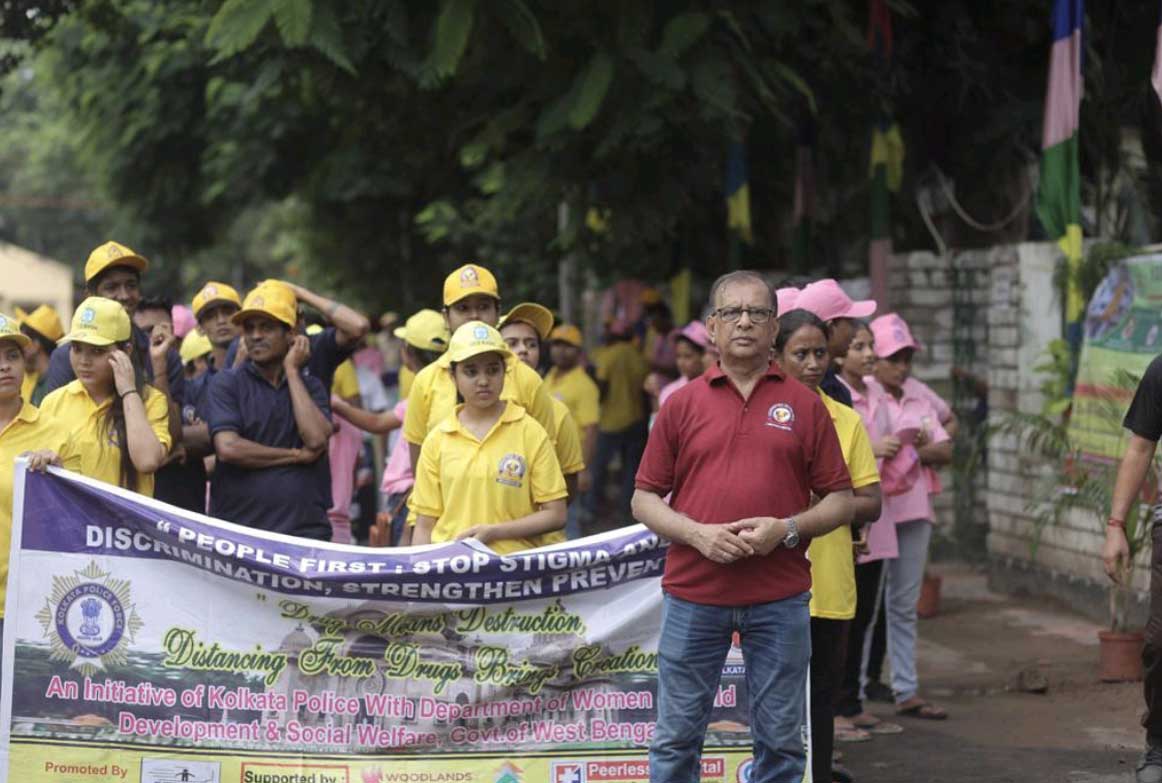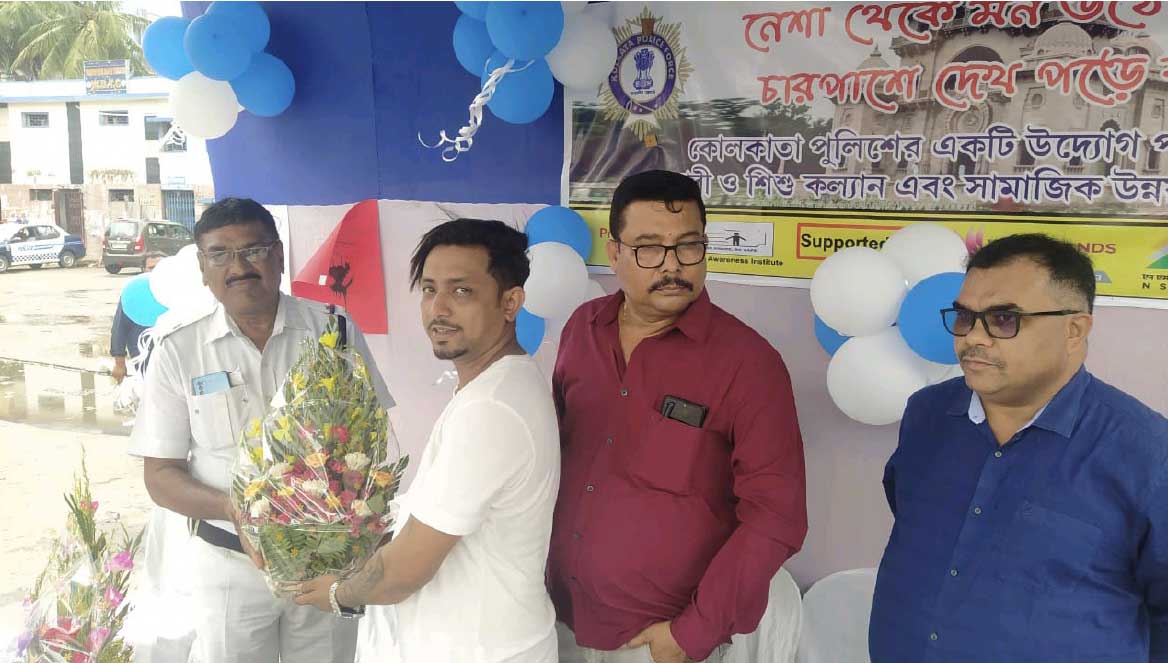
aashar_aalo OUR CARE

aashar_aalo OUR CARE


A friend in need is a friend indeed. We are your friends in your distress and always try our level best to rekindle your hope in life. Our services are personalized and confidential. In addition to the patient’s rehabilitation, we also provide family counseling for complete and continuous treatment to put you back on the right track. We take a note of each patient’s medical condition, addiction issues and history, family background and psychological assessment in order to comprehend and recommend a comprehensive counselling for de-addiction, rehabilitation and after-care treatment. We work with a team of experienced professionals. They are knowledgeable, trained, experienced and committed to rehab work. They listen to your problems and detail a treatment plan to help you regain your mental strength and iron determination so that you can scream out “NO” to drinking or drugs. We ensure our best support, attention and care for YOU.
read moreAt Aashar Aalo Foundation, the Best Rehabilitation Center in Kolkata, we offer personalized and confidential services to aid in your recovery journey. Our approach extends beyond just the patient's rehabilitation, as we also provide family counseling, ensuring a complete and continuous treatment plan to guide you back on the right track. With a keen focus on understanding each patient's medical condition, addiction issues, history, family background, and psychological assessment, we can tailor comprehensive counseling for de-addiction, rehabilitation, and after-care treatment. Our goal is to provide the highest quality care, empowering you to achieve lasting recovery and well-being.
An addict refers to an individual who is dependent on a substance, behavior, or activity to a degree that it becomes compulsive and interferes with their daily life and overall well-being. Addiction is often characterized by an inability to control or stop the consumption or engagement in the substance or behavior, despite negative consequences. Addiction can manifest in various forms, such as drug addiction (e.g., alcohol, opioids, stimulants), gambling addiction, internet addiction, gaming addiction, or even addiction to activities like shopping or eating. It is important to note that addiction is a complex condition that affects individuals from all walks of life, regardless of age, gender, socioeconomic status, or educational background. It is crucial to approach addiction with empathy and understanding, as it is considered a medical condition rather than a moral failing. Seeking professional help and support is essential for individuals struggling with addiction to overcome their challenges and lead a healthier, more fulfilling life.
Addiction treatment is crucial for several reasons: 1. Breaking the cycle of addiction: Addiction is a chronic and relapsing condition, meaning it tends to persist without proper intervention. Treatment programs provide individuals with the tools, strategies, and support needed to break free from the cycle of addiction and establish a healthier lifestyle. 2. Addressing underlying issues: Addiction is often a symptom of deeper underlying issues, such as trauma, mental health disorders, or unresolved emotional pain. Treatment programs aim to identify and address these root causes, providing individuals with the opportunity to heal and develop healthier coping mechanisms. 3. Enhancing physical and mental well-being: Substance abuse can have severe physical and mental health consequences. Addiction treatment focuses on detoxification, managing withdrawal symptoms, and providing medical care to minimize the physical harm caused by substance abuse. Additionally, therapy and counseling are essential components of treatment, aiding in the improvement of mental well-being and emotional stability. 4. Learning relapse prevention strategies: Recovery from addiction is a lifelong process, and the risk of relapse is a reality for many individuals. Treatment programs equip individuals with relapse prevention strategies, teaching them how to recognize triggers, manage cravings, and develop healthy coping mechanisms to maintain long-term sobriety. 5. Building a support network: Addiction treatment programs offer a supportive environment where individuals can connect with peers who understand their struggles. This sense of community is invaluable during the recovery journey, providing encouragement, accountability, and a network of individuals who can relate to their experiences. 6. Improving overall quality of life: Addiction can have devastating effects on various aspects of life, including relationships, work or academic performance, financial stability, and personal fulfillment. By addressing addiction through treatment, individuals have the opportunity to rebuild their lives, repair relationships, regain productivity, and find joy and meaning in life once again. Overall, addiction treatment is vital for breaking the cycle of addiction, addressing underlying issues, improving physical and mental well-being, learning relapse prevention strategies, building a support network, and ultimately enhancing the overall quality of life for individuals struggling with addiction.
Treatment centers play a vital role in helping individuals overcome addiction by providing comprehensive and specialized care. Here are some ways in which treatment centers assist individuals in their recovery journey: 1. Professional assessment and personalized treatment plans: Treatment centers typically begin with a thorough assessment of the individual's addiction history, physical and mental health, and other relevant factors. Based on this evaluation, a personalized treatment plan is developed to address the individual's specific needs and challenges. 2. Detoxification and medical support: For individuals with substance addictions, treatment centers offer medically supervised detoxification to safely manage withdrawal symptoms and help individuals navigate the initial stages of sobriety. Medical professionals closely monitor the detox process to ensure safety and comfort. 3. Therapy and counseling: Treatment centers provide a range of therapeutic interventions, including individual counseling, group therapy, and family therapy. These sessions help individuals explore the underlying causes of their addiction, develop healthy coping mechanisms, and acquire the skills needed to maintain sobriety. Therapists and counselors guide and support individuals throughout their recovery process. 4. Education and skill-building: Treatment centers offer educational programs and workshops that help individuals understand addiction, its impact on their lives, and the tools necessary for recovery. They learn about relapse prevention, stress management, communication skills, and strategies for building a healthy lifestyle. 5. Peer support and community: Treatment centers provide a supportive and understanding environment where individuals can connect with peers who are going through similar challenges. Group therapy sessions and support groups foster a sense of community and allow individuals to share experiences, gain encouragement, and receive support from others who can relate to their struggles. 6. Holistic approaches: Many treatment centers incorporate holistic approaches to complement traditional therapy. This may include activities such as mindfulness exercises, yoga, art therapy, music therapy, or outdoor recreational activities. These holistic practices promote self-discovery, relaxation, stress reduction, and overall well-being. 7. Aftercare planning: Treatment centers emphasize the importance of developing a comprehensive aftercare plan to support individuals' long-term recovery. This plan may include ongoing therapy, participation in support groups, sober living arrangements, vocational or educational support, and connections to community resources. By providing a structured and supportive environment, access to professional care, evidence-based therapies, peer support, and comprehensive aftercare planning, treatment centers offer individuals struggling with addiction the resources and guidance needed to overcome their challenges and maintain lasting recovery.






